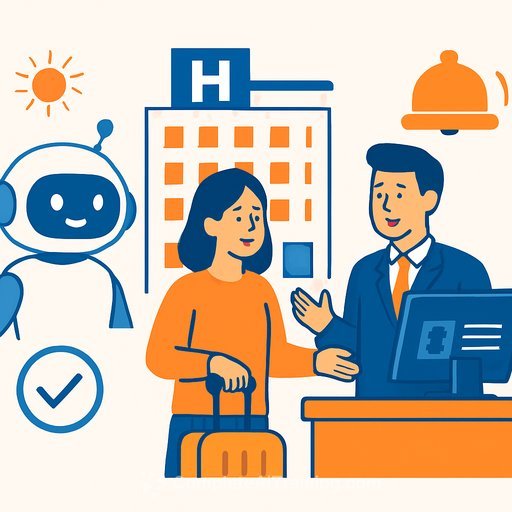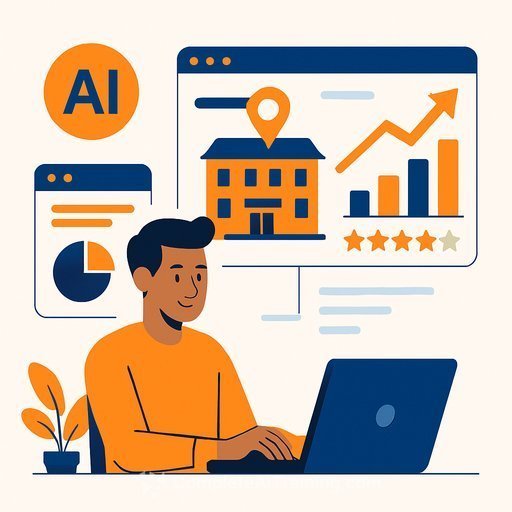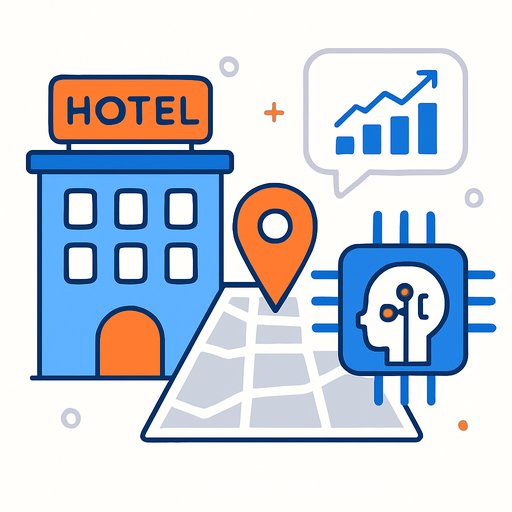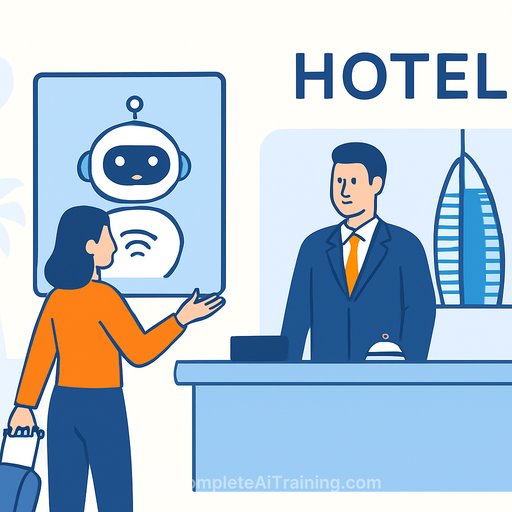Agentic AI for Hotels: How intelligent agents will reshape operations, revenue, and guest experience
Hospitality is entering a new stage of digital maturity. A new report from Mews outlines how agentic AI will shift hotels from assistive tools to autonomous systems that work as digital coworkers. The goal isn't to replace people. It's to give teams more time for guests and less time on screens.
What is agentic AI (in plain terms)?
Unlike static chatbots or single-purpose automations, agentic AI connects your hotel systems, reasons about what's happening, plans, and acts-often without waiting for prompts. These agents coordinate across departments, anticipate needs, and make decisions that move the business forward.
They don't work in isolation. They collaborate with staff and other agents to hit defined outcomes. Think orchestrators, not widgets.
Why this is happening now
- Advances in large language models are making decision-quality automation possible.
- Hotel tech stacks have grown complex; manual coordination doesn't scale.
- Open, connected platforms (like the Mews ecosystem) give agents the data and interoperability they need to work reliably.
According to the report, 92% of travel organizations have tried generative AI-but most usage is still basic. Agentic AI is the next step: proactive, cross-system orchestration with measurable results.
What it looks like in practice
- Revenue agents: Adjust rates and distribution in real time using live demand, competitor moves, pickup, and events. They test, learn, and iterate-without waiting for a human push.
- Operations agents: Forecast staffing, build housekeeping schedules, route maintenance, and prevent issues before they hit the guest.
- Guest agents: Act like digital concierges-curate experiences, resolve friction points, and turn potential complaints into memorable moments.
The point isn't more tech. It's better service at scale.
What stays human
"Agentic AI bridges that divide. It's about freeing humans from repetitive work so they can focus on what truly defines our industry: hospitality itself." - Richard Valtr, Mews
"True hospitality will always be human. The role of AI is to make that humanity more visible, to give staff the time, clarity, and confidence to deliver their best work." - Matt Welle, Mews
The data foundation: build a semantic layer
Agentic AI needs context to make accurate decisions. That means a unified data model-bookings, profiles, inventory, rates, tasks, and preferences mapped into one semantic layer. Without it, agents operate on fragmented signals and produce inconsistent results.
- Standardize guest and company profiles across systems.
- Define inventory and rate plan hierarchies with clear rules.
- Centralize events, tasks, and service data for cross-department visibility.
Practical roadmap for hotel teams
- Map your stack: List PMS, RMS, CRS, POS, housekeeping, maintenance, messaging, and payments. Note API access and data quality.
- Clean the data: Deduplicate profiles, fix broken rate links, and standardize fields that agents will act on.
- Pilot high-ROI use cases: Start with revenue optimization or housekeeping scheduling where outcomes are measurable.
- Set guardrails: Define budgets, thresholds, and approval flows (e.g., max price deltas, comp limits, escalation rules).
- Train your team: Clarify where agents decide, where humans approve, and how to override.
- Measure, then expand: Prove value in one area, then roll into maintenance, guest communications, and upsell flows.
Metrics that matter
- RevPAR, GOPPAR, and net revenue lift (post-commission).
- Look-to-book and direct conversion rates.
- Labor hours redeployed to guest-facing work.
- Housekeeping task completion times and variance.
- Service recovery rate and NPS/CSAT shifts.
- Ancillary revenue per occupied room and attachment rates.
- Energy or maintenance cost avoidance through proactive actions.
Risk and governance (keep trust front and center)
- Use human-in-the-loop for sensitive decisions (rate fences, refunds, VIP handling).
- Log every agent action with rationale for auditability.
- Apply privacy standards and role-based access to guest data.
- Adopt an AI risk framework like the NIST AI RMF for policy, monitoring, and escalation.
What Mews is building
Mews has spent a decade creating a connected platform with an open API. With the acquisition of DataChat, they're accelerating conversational intelligence, semantic modeling, and the rollout of autonomous and semi-autonomous agents across revenue, operations, and guest experience. The outcome: an AI-first operating system where agents learn continuously and help hotels become more efficient, adaptive, and human-centric.
How to get started this quarter
- Pick one property and one use case with clear KPIs.
- Document rules and thresholds so agents can act safely.
- Run an A/B or phased rollout; compare against control periods.
- Share wins with frontline teams and gather feedback before scaling.
Agentic AI isn't about replacing staff. It's about stripping away busywork so your team can deliver service guests actually feel.
If you want structured upskilling for your team, explore AI programs by role at Complete AI Training or browse the latest AI courses.
Your membership also unlocks:






